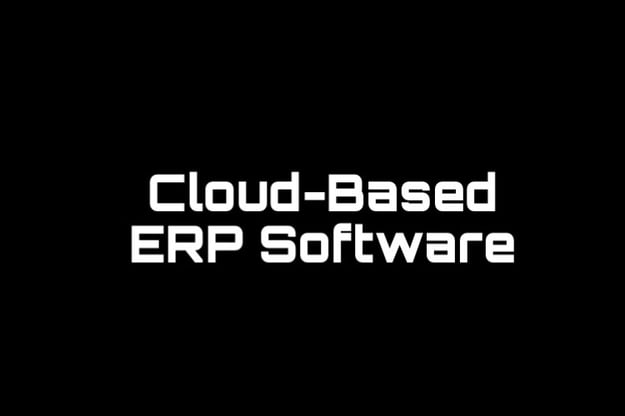Selecting the correct ERP system for a manufacturing operation can be challenging. Precision, flexibility, and being technologically advanced are becoming the main factors to consider. Supply chains are changing - fast. With production facilities gravitating more toward becoming heavily technologically-oriented as each new day brings us a new tool. As these technological advancements are implemented throughout manufacturing and production industries, there are new facets to be considered, such as, whether or not to embrace or avoid cloud-based ERP systems.
Cloud-based systems are becoming more common within the manufacturing industry. Cloud ERP systems utilize a web browser or web service to communicate data to points of production and production workers from the Cloud. This differs from an on-premise ERP system through the ability to be configured, updated and remotely installed instead of a physical on-site central installation. The cost of these two ERP delivery models can differ, with cloud-based ERP systems having a monthly subscription, and on-premise ERP systems usually having a one-time licensing fee. Some of the other various advantages of this ERP system include:
- Implement Quickly - Investment of new hardware and slower updating is not needed for cloud-based systems that utilizes the web, because updates are implemented without human-interaction.
- Accessibility of Features - Since updates are faster, more features are implemented with every update, therefore enhancing the system frequently and increasing the ERP systems functionality.
- Data and Integration Enhancement - With cloud-based ERP systems being web-oriented, integration and data accuracy improves greatly. Advanced technology can blow past older on-premise ERP systems that lack data accuracy and overall system integration.
- Non-Physical Servers - Maintenance of hardware is not essential, simply because there is not physical hardware on-site at all. This is a big plus for operations that have to constantly maintain hardware and can instead further their focus on other areas within the production facility.
On-premise ERP systems can seem like an attribute of the past, with production facilities leaving the manual installation of updates and hardware behind and utilizing cloud-based systems that update as needed all on its own. Yes, cloud-based ERP systems are becoming an important aspect to consider for the future, but there are also various disadvantages of cloud-based systems as well.
Disadvantages of Cloud-Based ERP Systems
Along with the perks of a cloud-based ERP system, there are also disadvantages that make the system unfavorable and could even sway production facilities away from utilizing the system. Various disadvantages of cloud-based ERP systems include the following:
- Data-Security - This is one of the biggest issues that is concerning to supply chain and the cloud. With information being strictly web-accessible, data-breaching becomes a legitimate concern for production facilities. Breaching of the ERP system can lead to system-failure and prevent or completely halt production until a solution is implemented.
- Customization Limitation - As cloud-based systems are becoming configurable, older customizations are beginning to be expressed as standard. Customization can only go so far, this is why specific manufacturing operations are still utilizing on-premise ERP systems that are best suited for that specific operation.
- Price Contemplation - The cost of a cloud-based ERP system may greatly outweigh the cost of an on-premise ERP system. Since the system is technologically advanced, it is considered superior and therefore can cost more.
The pros and cons of a cloud-based system are difficult to weigh and looking at the attributes of a cloud-based system can aid in the decision making process of choosing the correct ERP system. Finding the best suited ERP system for a production facility will aid in efficiency, flexibility, and higher output.
Make Sure Your Cloud ERP Actually Pays Off
Choosing between cloud-based and on-premise ERP is a big decision—but it’s not the one that ultimately protects your margins. Even with a modern ERP, many manufacturers still plan in spreadsheets, leading to late deliveries, wasted capacity, overtime, excess inventory, and expensive rush shipments.
Download our one-page “The Money Is in the Planning” infographic to see the most common ways manual, spreadsheet-based planning undermines profitability. Use it as a quick checklist to find where your factory is leaking money today—and where Advanced Planning & Scheduling (APS) alongside your ERP can deliver the fastest ROI.

See How APS Works with Cloud & On-Prem ERP (Video)
APS Resources